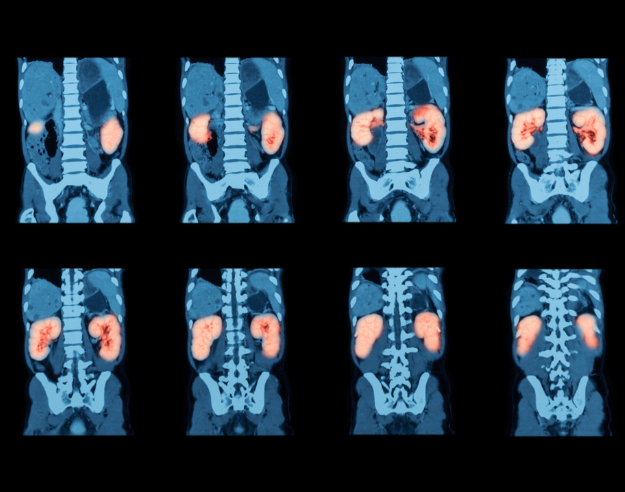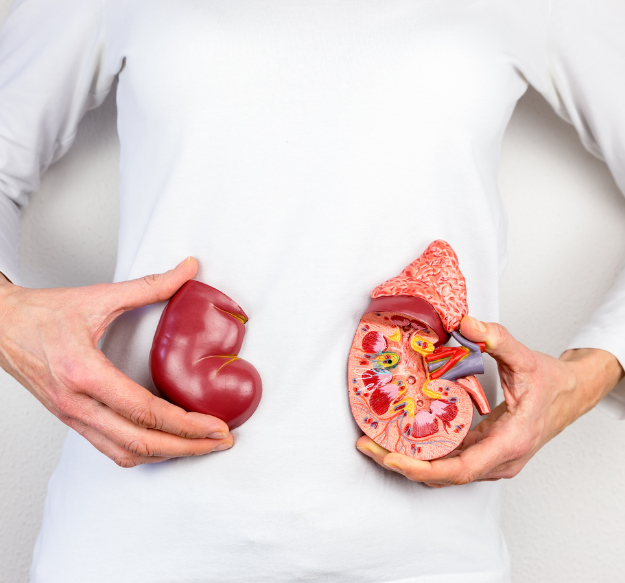

Chronic kidney disease is a long-term condition in which the kidneys gradually lose its function over time. The kidneys filter blood that passes through tiny filtering apparatus called glomerulus, thus removing waste and excess fluids from the body. When kidney function declines, harmful levels of waste and fluid can build up in the body, leading to a variety of health problems.
Chronic kidney disease is typically divided into five stages based on how well the kidneys are functioning. Blood levels of creatinine and estimated glomerular filtration rate (eGFR), are used to determine the level of CKD. Mild disease is stage 1, and stage 5 is end-stage kidney disease (ESKD).





